A story of determination
Like many coffee farmers in Jazan, Abu Awwad faced challenges on his journey. Through Aramco’s coffee initiative, he enhanced his farming techniques and increased his production.
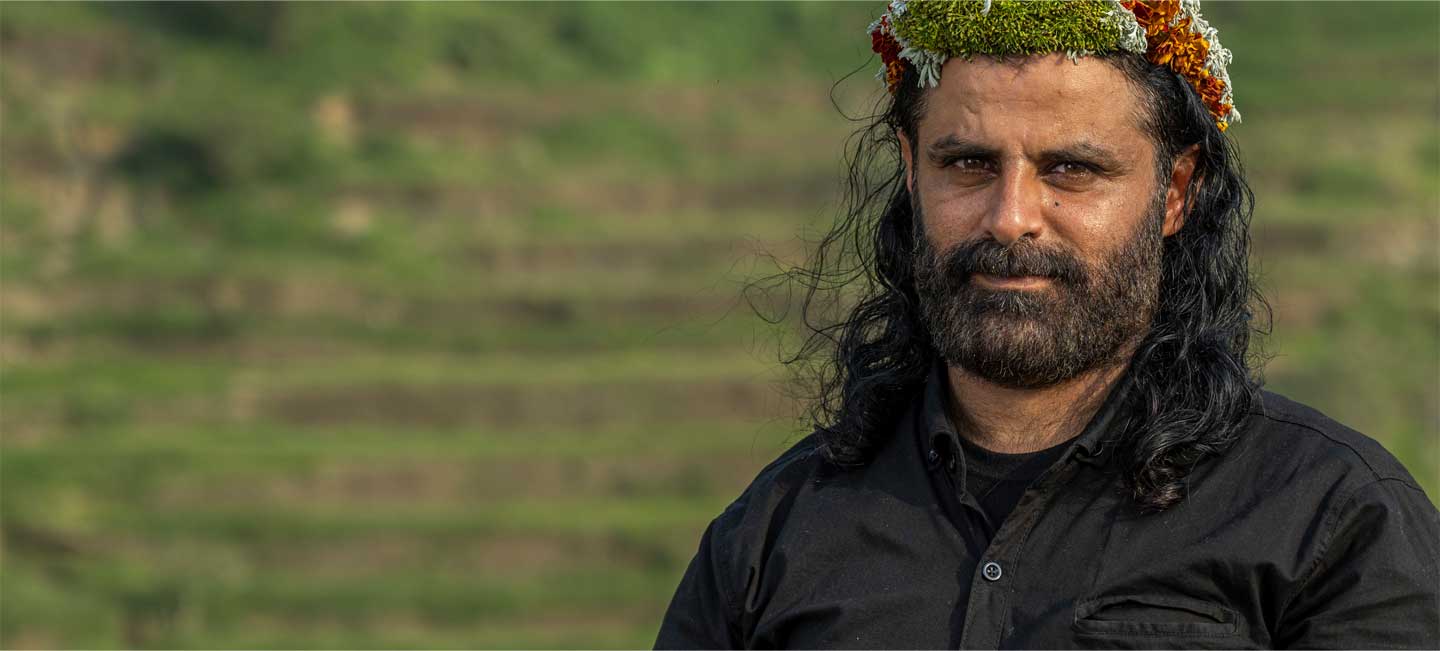
- At the age of 5, Abu Awwad started helping his father and grandfather harvest their crops
- He and other farmers experienced challenges on their coffee farming journey due to lack of irrigation water caused by droughts
- Today, through the support of Aramco’s coffee initiative which provided farming expertise and best practices, Abu Awwad increased his coffee production and successfully expanded his sales of coffee beans
The governorate of Al-Dayer is a stunning area in Jazan, Saudi Arabia. Known for its verdant mountain peaks and valleys, Al-Dayer is rich with archeological sites that have made it a prominent tourist destination in the region. But what makes Al-Dayer so unique are the many coffee farms covering its mountains.
These coffee farms are home to Saudi beans — sweet-flavored coffee beans that are famously grown in the south-western part of Saudi Arabia. They are an important source of income for local communities in the area. For years, growing these beans has been an art passed down from one generation to the next.
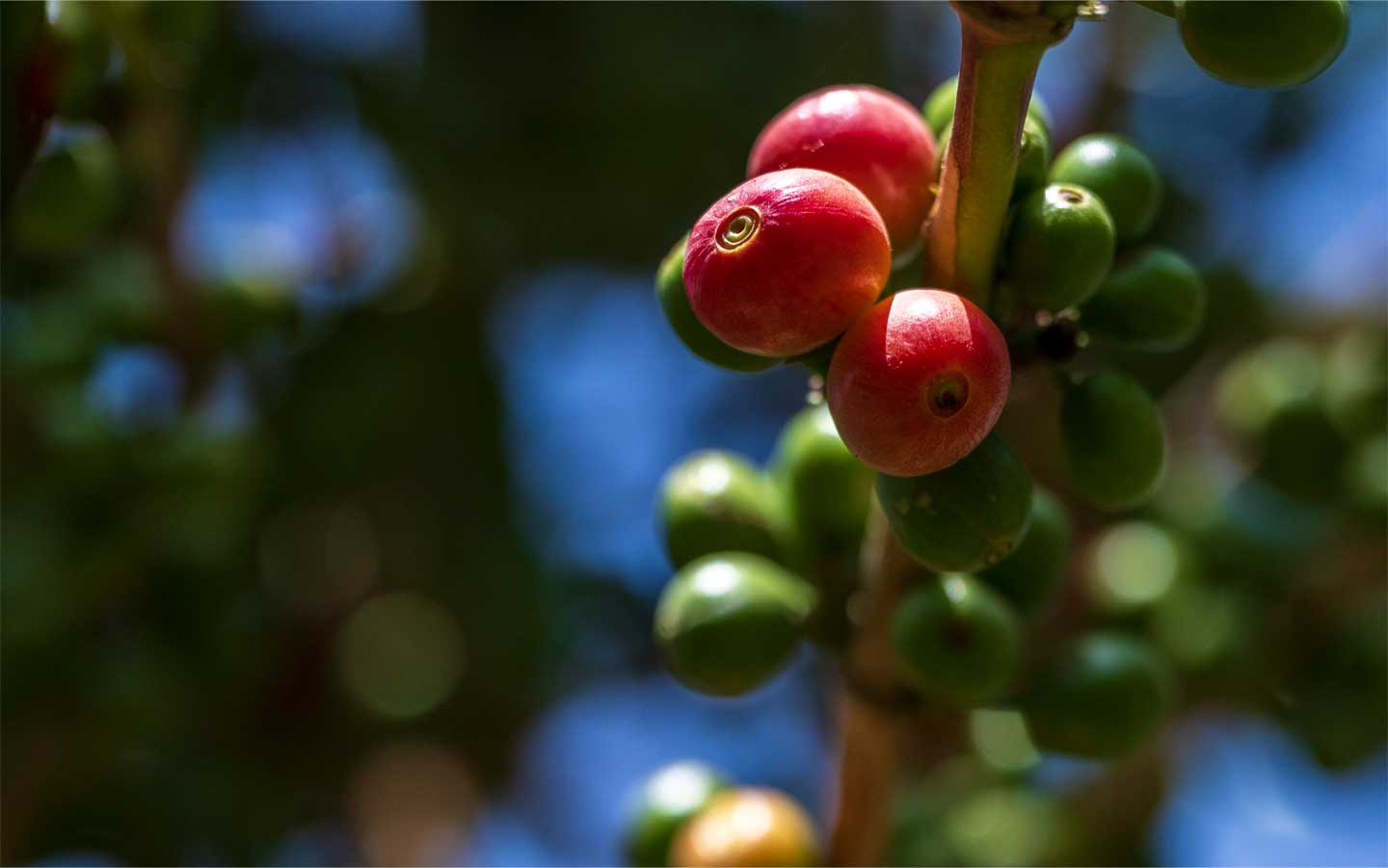
The ins and outs of Saudi coffee beans
The Saudi coffee bean is a cultural treasure known for its distinct scent and delicious taste. It is a sub-variety of the Arabica bean — one of the most popular coffee beans in the world. Growing them involves a long and laborious process, and coffee farmers can only harvest them 2-3 years after planting their seeds. As is the case for Arabica beans, Saudi coffee beans are also water lovers. They require a lot of consistent irrigation — which can be made available via smart irrigation systems — in the early stages after seed planting. Lack of rain and irrigation water, and increased soil salinity in coastal areas, have previously affected the coffee crops of some farmers in Al-Dayer, including Abu Awwad.
Meet Abu Awwad
Ahmed Jabran — who also goes by Abu Awwad — began his coffee farming journey at around the age of five. He grew up watching both his father and grandfather harvest crops of the flavorful Saudi coffee beans.
"As a child, my grandfather used to tell me how his father and grandparents taught him to cultivate coffee beans, a craft that the tribes of Al-Dayer inherited from older generations,” says Abu Awwad.
“Back then, coffee farmers worked extra hard to take care of their trees,” Abu Awwad continues. “They used to transport bags of water from wells to their farms by carrying them on their backs.”
His passion grew as he did and tending the coffee soon became his source of income. Once he became an adult, Abu Awwad started selling coffee beans to his relatives and the people in his village.
His progress, however, was halted when a drought destroyed all but seven trees — out of 2,000 coffee trees — on his farm. In that moment, Abu Awwad nearly lost all hope that the coffee farm he inherited from his father would ever grow trees again.
Then his friends and fellow farmers urged him to join Aramco’s initiative, which he did.
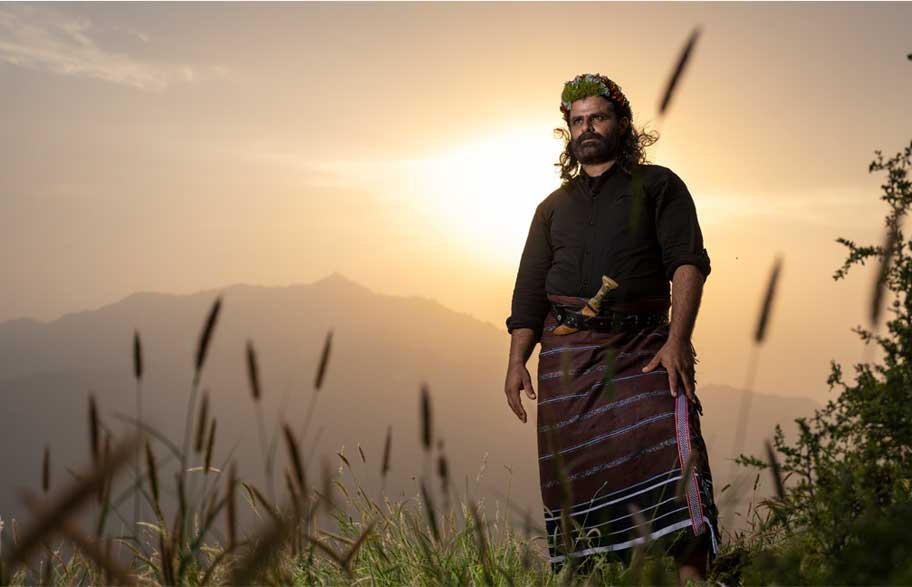
Abu Awwad
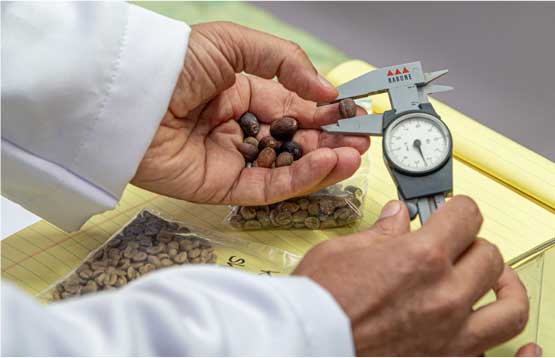
Aramco's coffee initiative
In 2016, Aramco launched its coffee initiative in collaboration with the Jazan Mountains Development Authority and Al-Dayer Charitable Society. It began in Al-Dayer, and then expanded to six additional areas: Faifa, Al-Rayth, Al-'Aridah, Al-'Aydabi, Harub, and the neighboring 'Asir region.
The initiative helped establish a quality-enhancement laboratory, offered agricultural guidance to coffee farmers, and promoted science-based coffee bean drying, peeling, sorting, and packaging. The initiative’s support included maintaining a number of coffee farms, and installing smart irrigation systems in the area. Experts were also appointed to raise and monitor the quality of coffee beans. All of this helped increase our farmers’ coffee bean production capacity to more than 800 tons by the end of 2021.
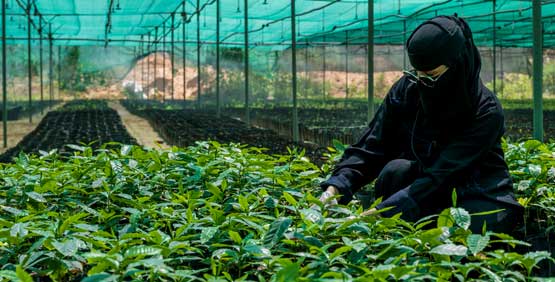
Enhancing capacity
Since its launch the initiative has supported 1050 farmers and has helped cultivate more than 200,000 new seedlings. As a result, their coffee output has now risen from 24 tons to 800 tons a year, and they’ve been able to expand sales into more markets. And with their nurseries now producing more than 900,000 seedlings per year (up from 300,000), this is just the start of even better things to come.
As part of its ongoing collaboration with local entities, Aramco also aims to establish the National Coffee Development Center. The center aims to further increase coffee production by supporting the entire coffee development chain which includes distributing the seedlings, providing best in class farming techniques to coffee farmers, creating a brand identity for Saudi coffee bean and help bring farmers’ products to market by supporting every step of the production process.
Reaping the benefits
The initiative helped turn things around for Abu Awwad. He learned about modern coffee farming techniques, and attended coffee cultivation training courses that helped him plant new coffee trees and enhance the quality of his crops.
"In the past, we used to plant trees in their own holes just like we had learned. Using this method, the tree would take more than a year to start production. The training course taught us to first prepare the hole, turn over the soil, and then add fertilizers.
"The results now could be seen within three months of planting the beans. The farm’s trees were even arranged in a single row, which is a modern distribution method." says Abu Awwad.
"People in the area loved applying these new methods,” Abu Awwad adds. “They spared farmers the hassle of planting trees using arbitrary methods."
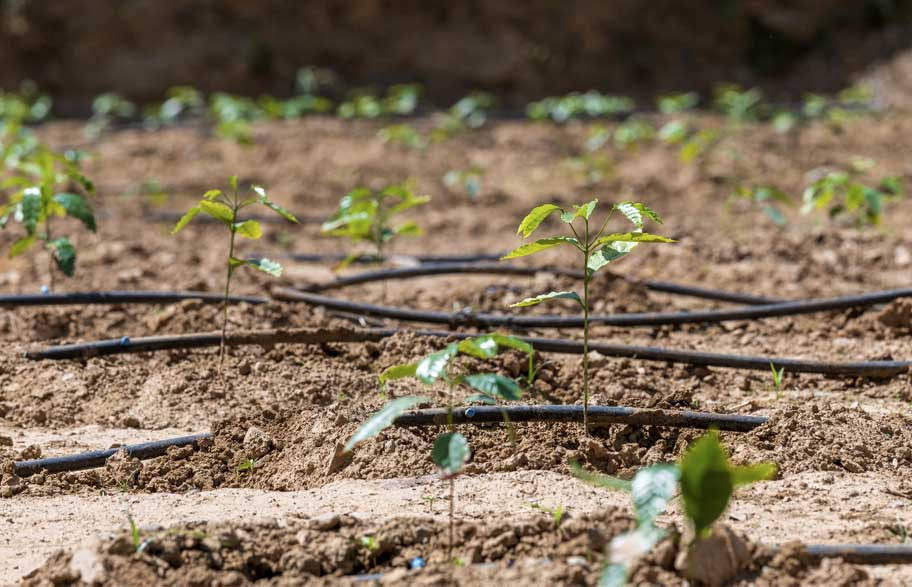
A smart irrigation system in-situ
Smart irrigation systems made available via the initiative also helped Abu Awwad and other farmers increase their coffee production, and expand their sales as a result.
"As time went on, we sold our crops in new areas. Today, our products are sold across the Kingdom and the GCC region," says Abu Awwad.
Passing down the love for the craft
Awwad, Ali, and Rashid, Abu Awwad’s sons, have all inherited their father’s passion for the craft. Today, they help him around the family’s coffee farm. Abu Awwad has passed down his knowledge to them and encouraged them to work and learn alongside him, just like he did with his father. Ever since they were little, they have watered coffee trees, pruned them, and used their beans to prepare coffee.
Together they take care of the farm, and through their dedication and with the help of Aramco’s support and training, their coffee production is growing and the family prospering. And this has encouraged more farmers to follow in their footsteps and join the initiative.
“Coffee farming became attractive to the people of Al-Dayer, including my cousin. He cultivated about 900 coffee trees in his farm, which are now productive. Many other villagers did the same," he adds.
Today, coffee farmers in Jazan continue cultivating and harvesting coffee beans like the generations before them. And, with the support now available to them, a future with many more opportunities for growth awaits them.
These opportunities include our partnership with the Saudi Coffee Company, which aims to build on the success of our coffee initiative and support a more competitive coffee industry in Saudi Arabia. Through this collaboration, we aim to continue supporting local coffee farmers with technical support, providing them with training and knowledge sharing opportunities, and helping more coffee farmers achieve economic independence.
More from Elements
The material in this article is intended to be for general informational purposes only, and readers should not place undue reliance on the statements or opinions therein. Any information provided speaks only as of the date this content was published and Saudi Aramco undertakes no obligation to correct, update, or revise any statements or opinions made in or implied by this article.



